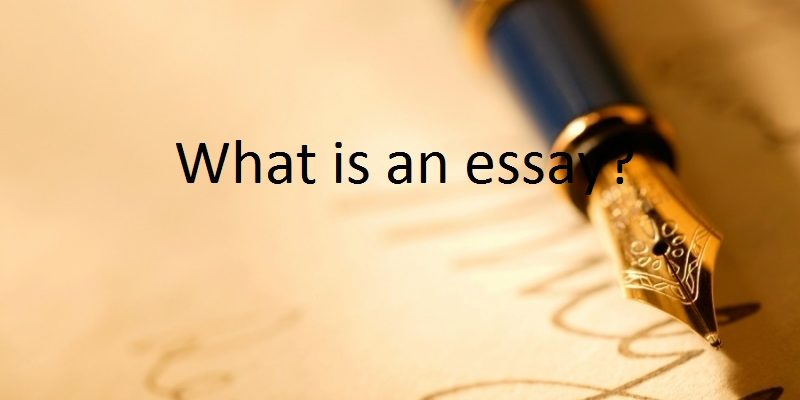What is an essay?
Publication Date:

The term “essay” was introduced in the 16th century by writer Michel de Montaigne. Since then, many bright minds tried to give a precise definition to this literary form but no universal variant was formulated yet.
The reason for that is the slippery nature of this type of writing, which appears to be in a shapeless form with a loose structure and a vast variety of subjects that may be covered.
- An essay can be informal, relaxed and humorous. It can also be formal, impersonal and even dogmatic.
- The voice of each piece of writing, its fictional qualities and the reader’s role may vary drastically.
- Each writer treats an essay as a literary form, which is to be shaped according to his unique vision.
- Usually, this composition is brief but again, due to the flexible nature, some essays can be quite voluminous.
- The five-paragraph structure is most preferable. Yet, the number of paragraphs can be increased until the point when the author manages to convey the main message.
- The essay may be written in the first-person point of view (I, ours, mine) but third-person (people, he, she) is preferable in most academic papers.
- The majority of texts composed in this literary genre is written in prose but there are pieces of writing in verse that are also called essays.
How famous writers describe an essay
Interestingly, each essayist has his own definition of what an essay is.
- Aldous Huxley: “One damned thing after another. A literary device for saying almost everything about almost anything.”
- Francis Bacon: “Dispersed meditations.”
- Samuel Johnson: “Loose sally of the mind. An irregular, indigested piece, not a regular and orderly performance.”
- Edward Hoagland: “Greased pig.”
- George Dillon: “Attempts to convince the reader that its model of experience of the world is valid.”
- Yoshida Kenkō: “Nonsensical thoughts written in idle hours.”
The purpose of an essay
An essay is truly versatile and can be effectively utilized in many settings. It can easily be used as the following pieces of writings:
- literary criticism
- political manifests
- discussions
- observations
- recollections
- reflections
In many countries, essays became a major part of the educational system. Evaluation of the writing skills is used to assess the performance of students in almost all educational establishments worldwide. The number of academic essay types is impressive. To name a few, students are required to write the following literary forms:
- expository essay
- descriptive essay
- argumentative essay
- narrative essay
- reflective essay
- process essay
- cause and effect essay
- compare and contrast essay
- classification and division essay
History can be studied and may be better understood through essays written by different authors from the past and theorists in the present.
What’s more, the concept of an “essay” has been now used in other media, which does not imply writing. For example, the phrase “film essay” sounds natural in the filmmaking industry as much as the phrase “photographic essay” in a photographic environment.
As we can see, the nature of an essay is vague but generally, it may be defined as a literary piece of writing the central idea behind which is a self-expression of the author.
If you feel like you’re struggling with writing your own essay, contact us and get your paper written by a professional essay writing service. Make your life easier and more fun!